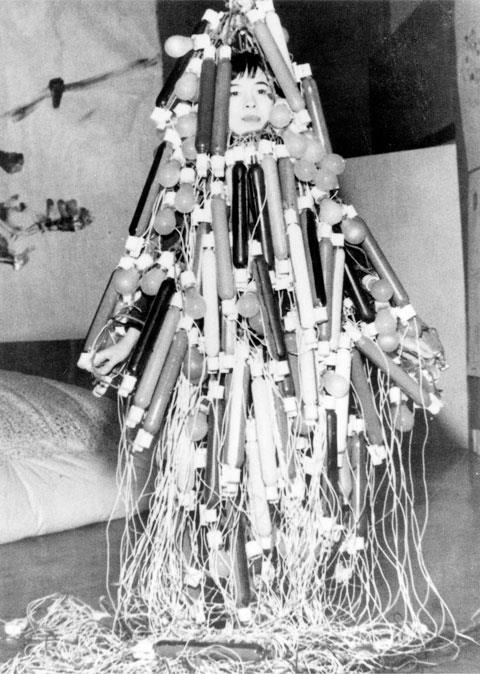
NIKOLA TESLA
نيكولا تيسلا
尼古拉•特斯拉
ניקולה טסלה
ニコラ·テスラ
니콜라 테슬라
Никола Тесла

نيكولا تيسلا
尼古拉•特斯拉
ניקולה טסלה
ニコラ·テスラ
니콜라 테슬라
Никола Тесла

ADAD
This installation is a mechanism that serves as a kind of interface between planetary processes and an audience. It consists of 12 transparent piezocrystals, grown especially for the project, and 12 motorized hammers that strike them. The installation is connected to the internet. Its core algorithm is controlled by data from a meteorological site which shows lightning strikes in real time (on average, 10~200 lightning flashes occur on the planet every minute). Each time the installation receives information about a lightning strike, a hammer strikes one of the crystals, resulting in a small electrical discharge produced by the crystal under mechanical stress. Each of these charges activates a powerful lamp and sound effects.

Power Plants
Hito Steyerl’s series of projects at the Serpentine Galleries is positioned around ideas of ‘power’. Beginning from the premise that ‘power is the necessary condition for any digital technology’, the artist considers the multiple meanings of the word, including electrical currents, the ecological powers of plants or natural elements, and the complex networks of authority that shape our environments. She addresses the notion of power through three interrelated research strands and projects: Actual Realityos, a collectively-produced digital tool; Power Walks, a series of guided walks and a tour that draws upon conversations with campaigners, community groups and organizations in the local area surrounding the Serpentine, and finally this exhibition, Power Plants, which features new video installations created using artificial intelligence trained to predict the future.

Energie!
Thorsten Fleisch creates films that reveal the shapes and patterns of natural forces and phenomena. In this work he reveals what energy in one of its simplest forms looks like in motion. Energie! is a sequence of still images created on light-sensitive photographic paper. The artist exposed dozens of sheets of paper to enormous electrical discharges, each leaving its imprint as a trail of light. Animating these images reveals patterns in their flow of energy, akin to tracing the flow of electricity at each moment of a lightning strike. As the images are photographs created without cameras, they are records of single moments. Accordingly we see dozens of split-second documents animated to reveal the shape and power of energy.

Энтони Хоу
એન્થોની હો
アンソニーハウ
앤소니 하우
Kadupul
Orchid that blooms only at night. Interior, hanging, electrically powered kinetic sculpture comprised of forty two “wings”.

Electric Dress
«‹Electric Dress› is a powerful conflation of the tradition of the Japanese komono with modern industrial technology. Prior to her conception of this work, Tanaka had appeared in a larger than-life paper dress that was peeled away layer by layer, not unlike the peeling away of Murakami’s paintings; she was ultimately disrobed to a leotard fitted with blinking lights. Tanaka began to envision ‹Electric Dress› in 1954, when she outlined in a small notebook a remarkably prophetic connection between electrical wiring and the physiological systems that make up the human body. (…) After fabricating the actual sculpture, she costumed herself in it in the tradition of the Japanese marriage ceremony. Hundreds of light bulbs painted in primary colors lit up along the circulatory and nerve pathways of her body.»
.